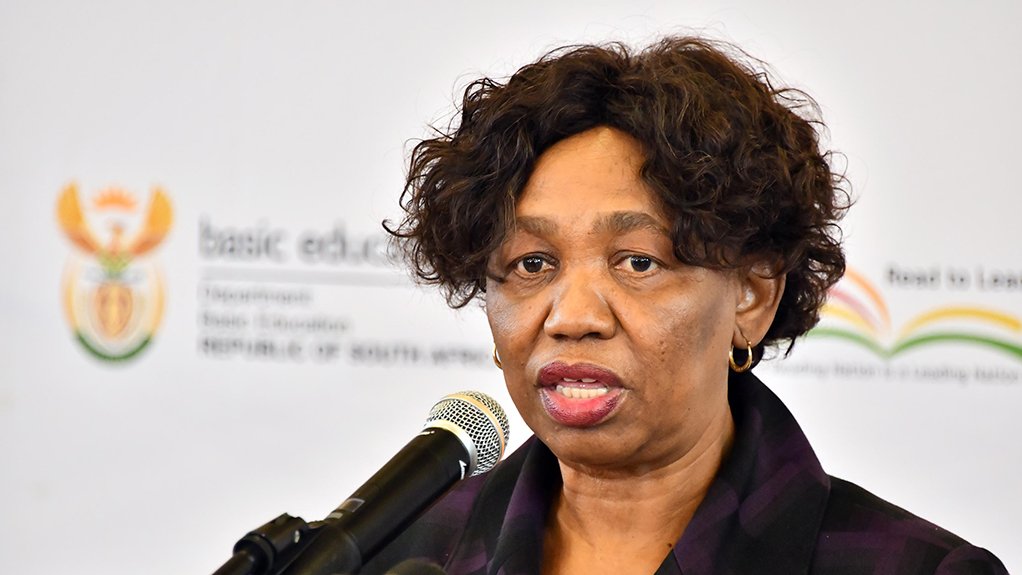Through comprehensive sexuality education, combined with the significant achievements in vaccinating over 80% of Grade 5 girls against the Human Papilloma Virus (HPV), deworming over 3.5 million learners in grades R-7, and daily feeding 9.6 million learners, we are making strides. These efforts play a crucial role in combating the prevalence of HIV/AIDS in educational centres.
As we commemorate World AIDS Day 2023, it is vital to reflect on both the progress made and the ongoing challenges in tackling the prevalence of Human Immunodeficiency Virus (HIV), especially among our younger population. The increasing trend of HIV prevalence among teenagers, who are at a pivotal stage of their development and education, is a matter of significant concern.
According to data from 2017, HIV prevalence among adolescents in South Africa stood at 3.7%, equating to 360,582 adolescents living with HIV. This group comprised 136,913 individuals aged 10–14 years and 223,669 aged 15–19 years, with the prevalence notably higher among female adolescents. While the incidence of HIV among adolescents aged 15–19 years was 0.82% in 2017, relatively stable since 2012, the overall situation
necessitates a focused response, particularly within the purview of basic education.
Around 7.8 million people, or 13.2% of the population, were living with HIV in South Africa in 2022. This is according to recently published estimates from Thembisa, the leading mathematical model of HIV in South Africa. HIV prevalence was much higher in specific sub-groups. An estimated 31% of women aged 25 to 49 in South Africa were living with HIV in 2022. For female sex workers, prevalence was estimated at 59%, and for men 18 or older who have sex with men 30%. In general, prevalence in men was much lower than in women,
and children had much lower prevalence than adults.
According to the report published by the South African National AIDS Council (SANAC), there’s a healthy increase in Antiretroviral Therapy (ART) coverage. It is attributed to various factors, including heightened access to HIV testing and treatment, improved retention in care, and the availability of newer, more effective ART regimens. ART coverage is reportedly higher among adults (94%) than children (84%) and more so in urban areas (95%) than in rural areas (88%). This is a significant improvement from 3.7 million people on ART in 2015.
In pursuit of achieving 95% ART coverage by 2025, South Africa is committed to enhancing testing and treatment access, improving patient retention, and developing new ART regimens.
The Department of Basic Education (DBE) stands firm in its commitment to supporting the national response to the spread of HIV, Sexually Transmitted Infections (STIs), and Tuberculosis (TB). Our approach extends beyond merely combating these diseases; it involves fostering a supportive environment for our learners. A prime example is our Care and Support Programmes, including the National School Nutrition Programme, which feeds
over 9.6 million learners from quintile 1 – 3 schools daily. Proper nutrition is crucial for those living with HIV, as it fortifies the immune system and enhances the effectiveness of antiretroviral therapies.
In partnership with the Departments of Health (DoH) and Social Development (DSD), our Integrated School Health Programme delivers essential health and social services within schools. This initiative has been transformative, vaccinating over 80% of Grade 5 girls against the Human Papilloma Virus (HPV) and deworming over 3.5 million learners in grades R-7. These measures are critical in reducing health risks that can aggravate the impact of HIV.
Collaborating with development partners and NGOs to implement the DBE National Policy on HIV, STIs, and TB has been instrumental. With support from the Global Fund and United States Agency for International Development (USAID), we’ve effectively rolled out Comprehensive Sexuality Education (CSE) through Life Skills and Life Orientation classes, equipping learners with age-appropriate, scientifically accurate information on Sexual Reproductive Health (SRH), HIV, gender, relationships, and more. This education is essential in empowering youth with knowledge and skills for making informed health and relationship decisions.
Furthermore, these partnerships facilitate referrals to health and social services, including HIV testing. Knowledge and awareness are powerful tools in the fight against HIV, and by ensuring our learners have access to this information, we equip them to proactively manage their health.
The DBE’s annual advocacy and awareness campaigns on HIV, leading up to World AIDS Day, play a vital role in our integrated service delivery. Targeting learners, teachers, support staff, and surrounding communities, these campaigns provide comprehensive services, including health screenings for HIV, STIs, and TB, and assistance with applications for birth certificates and IDs. This holistic approach is critical to our strategy, addressing the health aspects and socio-economic factors impacting HIV prevalence and management.
While we celebrate progress, we cannot overlook the persisting challenges. The prevalence of HIV in South African society remains a significant concern. As we continue our efforts in education and awareness, it is imperative to focus on reducing the stigma and discrimination associated with HIV, calling for a concerted effort from all sectors of society.
In conclusion, we remain committed to ensuring that our basic education system plays a pivotal role in the fight against HIV. We are dedicated to providing quality education and fostering an environment that supports the health and well-being of all our learners. As we commemorate World AIDS Day, let us renew our commitment to this cause and work owards a future where HIV is no longer a threat to our nation’s health and prosperity.
Wrtitten by Angie Motshekga. She is the longest serving Minister of Basic Education in South Africa, post
1994.
EMAIL THIS ARTICLE SAVE THIS ARTICLE ARTICLE ENQUIRY
To subscribe email subscriptions@creamermedia.co.za or click here
To advertise email advertising@creamermedia.co.za or click here











